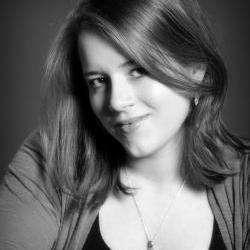Keeping up their tradition of mixing contemporary repertoire and new commissions with early music, Fretwork presented an eclectic mix of Purcell Fantasias and a variety of modern works written or arranged for viol consort and soprano in tonight’s concert, part of the RCM’s annual viol festival.
We began with the first of two works for viol consort by Orlando Gough, who is a British-born composer well known for his compositions for ballet, contemporary dance and theatre. Tonight’s set, Birds on Fire I and II, reflected this dance-like quality, with quirky syncopation and a feel of the oriental. The unison start from all five viols showed impressive control and intonation and was a striking opening to the concert.
We were then introduced to our singer for the evening, Susan Bickley. Fretwork were originally going to be joined by Clare Wilkinson, but she was taken ill at the last minute and Bickley bravely offered to take the whole programme on with no alternations, despite some of the obscure repertoire. Her opening pieces, indeed, were less than straightforward: John Woolrich’s Three Arias. I felt Bickley coped well with the disjunct lines, but this was obviously unfamiliar repertoire and felt unsure throughout. There were moments of bloom in which her powerful voice rang through the Amaryllis Concert Hall beautifully and I thought the haunting nature of the third aria, “Clouds”, was sensitively portrayed, but the performance was somewhat lacking in the variety of tonal colour and dynamic shaping I felt the composition was asking for.
As a complete contrast, this was followed by one of the Purcell Fantasias, no. 7. This was beautifully shaped and the rich sonorous tones of the viols squeezed every inch of harmonic juice out of Purcell’s beautiful writing. The individual lines were well balanced and always articulate, with the melodic lines being passed from voice to voice seamlessly.
Interestingly, Fretwork decided to include in tonight’s recital two vocal pieces whose accompaniments had been arranged for viol consort – yet another connotation of the title of the concert, New Wine in Old Bottles. I thought this worked well for Ivor Gurney’s popular song Sleep. The viols really made the most of the romantic harmonic language, but I felt that light and shade were again lacking from Bickley’s rendition. There is so much scope in this music for tugging on the audience’s heartstrings, and I felt that the emotional power of the music could have been explored much more. The same could be said for the Purcell, Shall I compare thee, which simply sounded unfamiliar to the singer.
Following a second Fantasia, we then moved into the most experimental of tonight’s works, A Sinking Love by Tan Dun. Using extended vocal techniques and a magical atonal soundworld, I thought this was the first moment when Bickley really shone. The wonderful pianissimo vocal entries, in which the soprano and the viols are interchangeable and indistinguishable, were completely enthralling.
We finished with Duncan Druce’s Three Poems of Henry Vaughn. These beautifully evocative texts, “Bereavement”, “The Morning Watch” and “Midnight”, are set in three contrasting styles, which I thought worked extremely well. The final piece, in particular, with iridescent shimmering string chords, was beautifully played and really made the most of the distinctive sound of a viol consort. Bickley sounded more comfortable in the dramatic writing of the second movement and it was nice to hear some real power and emotion in her voice. It was a real shame that Bickley had not had more time to prepare for this concert, as I felt she could have given us so much more – but some wonderful viol playing aside, the whole concert fell a little flat.


